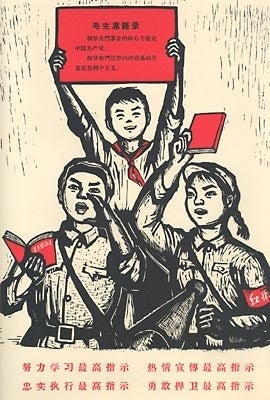In 1899, the twenty-five-year-old Herbert Hoover and his wife, Lou Henry, were living in Tientsin, China, where he was the comanager of the Kaiping mines. It was at that time that Hoover first began to study Chinese language and history. In 1907 he helped Stanford University historian Payson Treat buy books about China, especially its history, and in 1913 Hoover donated six hundred such books, some very rare, to Stanford University. In 1919 Hoover's interest in foreign affairs inspired him to establish the Hoover Institution Library and Archives. After World War II, the Hoover Library and Archives launched a program to collect comprehensive materials on contemporary China and Japan. With advisory assistance from Hoover and officials in the Department of State, the Hoover Institution was able to establish an entire network of dedicated people in China and Japan, most of whom were Stanford alumni or former Stanford professors, to help the program. With luck and good timing, in the following decades Chinese and non-Chinese public servants, military officers, engineers, journalists, scholars, and the like began donating their private papers and other materials to the Hoover Institution, where they were to be preserved and made available to interested readers. The papers of T. V. Soong are one among the many preeminent collections. Americans involved in China, such as General Albert Wedemeyer and General Joseph Stilwell, also deposited their papers in the Hoover Archives.
In 2003 the Hoover Institution signed an agreement with the Kuomintang (KMT), or the Chinese Nationalist Party, to help preserve the vast historical records held in that party's archives in Taipei, Taiwan. It was a breakthrough, further enriching Hoover's already marvelous Chinese collections. As the longest-enduring political party in Asia, the KMT was China's premier revolutionary party until it was defeated in 1949 by Communist Party forces and forced to relocate in Taiwan. The historic Hoover agreement provides for microfilming and digitizing the official party records, whose permanent home is in Taiwan.
The T. V. Soong family began donating its materials to the Hoover Institution Archives in 1973, followed by additional papers in April 1980 and more in the spring of 2004. In August 2006, the papers of H. H. Kung, another powerful figure in modern China, were loaned to Hoover by the Kung family. Half the collection was opened to the public in the form of microfilms in January 2010. Meanwhile, in December 2004, the original personal diaries of Chiang Kai-shek and Chiang Ching-kuo, two former presidents of the Republic of China, were transferred and deposited at the Hoover Archives. The Chiang family signed an agreement with Hoover agreeing that the diaries will remain in the Hoover Archives for fifty years or until a permanent repository is found in the territory of China. By the summer of 2009, the entire Chiang Kai-shek diaries, ranging from 1917 to 1972, were opened.
Those donations helped create Hoover's unique Modern China Archives and special collections. The rich holdings of Hoover's East Asian collection challenge traditional historiography, providing new historical interpretations of China and Taiwan and of East Asia in general. These special collections are now being integrated with the China-related material that has been accumulated since 1919. (Trade press materials, such as published vernacular Chinese books and serials, were transferred from the Hoover Archives to the East Asian Library of Stanford University in 2002.)





